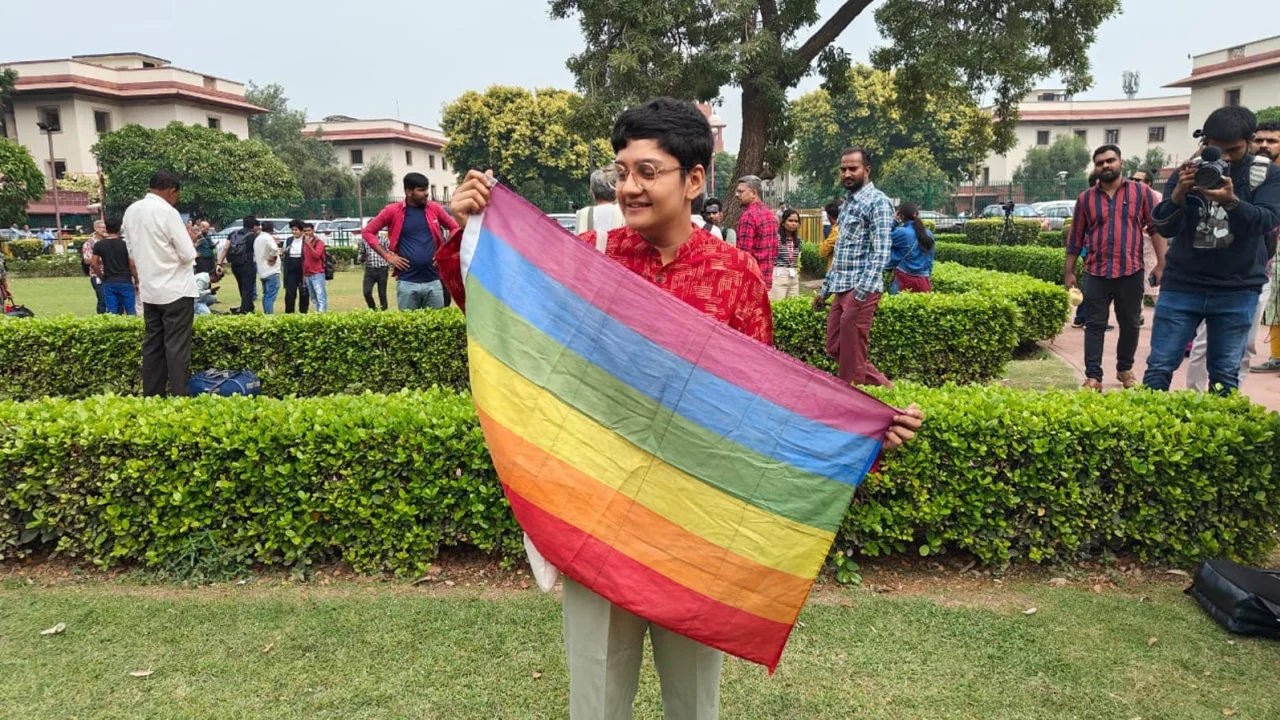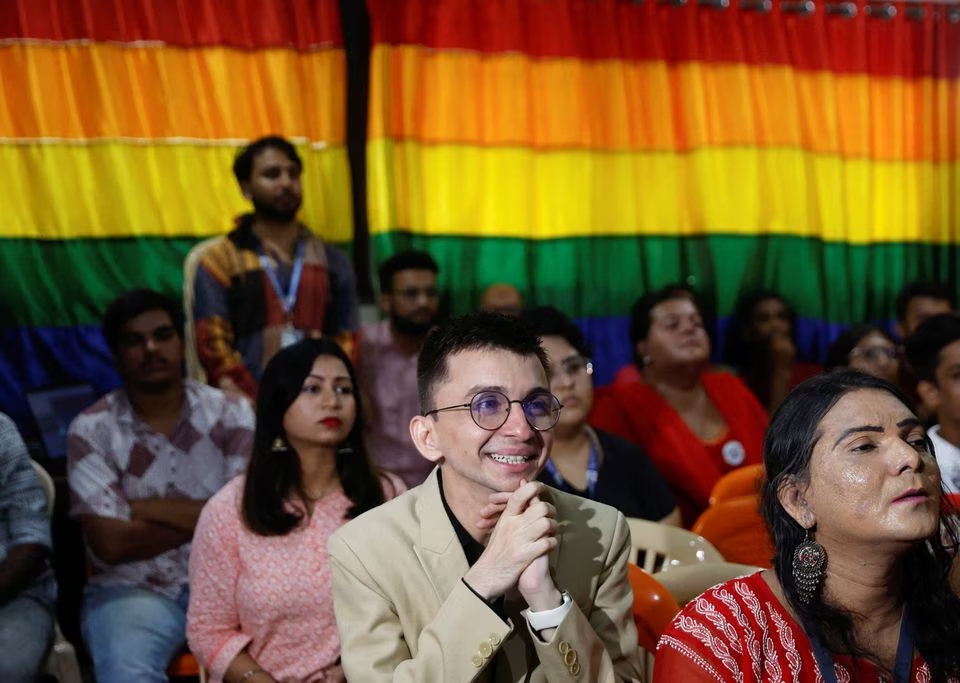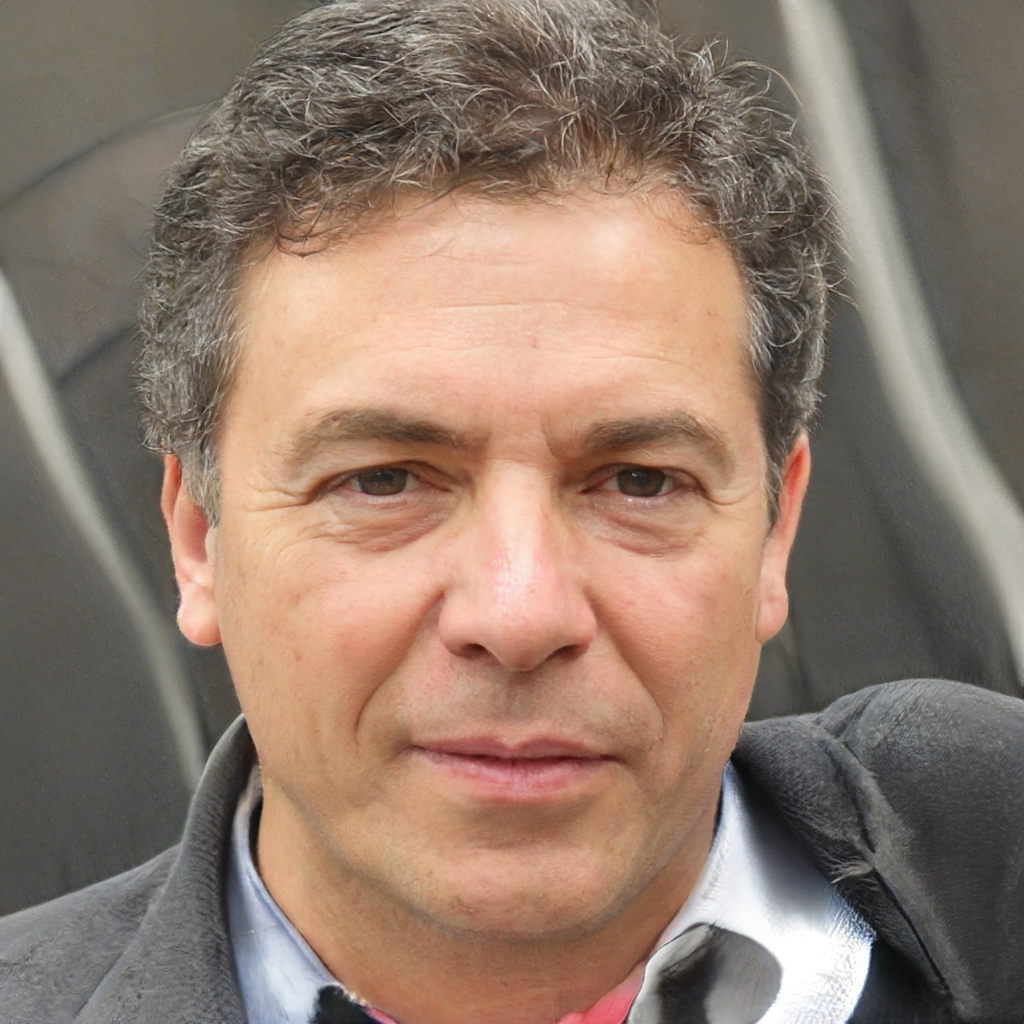India's Top Court Declines To Legally Recognize Same-Sex Marriage In A Landmark Ruling
India's top court declines to legally recognize same-sex marriage in a landmark ruling, raising both disappointment and hope among LGBTQ activists.
Author:Camilo WoodReviewer:Alberto ThompsonOct 18, 2023872 Shares32.2K Views

India's top court declines to legally recognize same-sex marriage in a landmark ruling, raising both disappointment and hope among LGBTQ activists.
While the five-judge constitution bench, led by India's chief justice, upheld the ban on same-sex marriage, they emphasized the rights of the LGBTQ community to be free from prejudice and discrimination.
A Landmark Verdict
The highly anticipated verdict was delivered by Chief Justice D. Y. Chandrachud on a Tuesday and was streamed live across the nation. Crowds gathered outside the court to watch the proceedings on their cellphones.
During the two-hour ruling, Chief Justice Chandrachud made a crucial point by stating that queerness is a "natural phenomenon." He urged the government to ensure that the "queer community is not discriminated against because of their gender identity or sexual orientation."
Justice S. Ravindra Bhat echoed the sentiment that LGBTQ couples have the right to choose their partners and celebrate their commitment in their preferred manner within the social realm.
However, he clarified that this recognition does not extend to claim any legal entitlement or status for same-sex unions.
Bhat suggested the formation of a "high-powered committee" to evaluate laws indirectly discriminating against LGBTQ couples by denying them compensatory benefits and social welfare entitlements that typically come with legal marriage.

Legal Implications
India's existing marriage laws currently prevent millions of LGBTQ couples from accessing legal benefits associated with matrimony, including adoption, insurance, and inheritance rights.
More than a dozen petitioners had challenged these laws, taking their case to the Supreme Court, where hearings took place in April and May.
While the verdict was not what they had hoped for, the recognition of their relationships marked a step forward in the struggle for LGBTQ rights.
Reactions to the ruling were diverse. Some LGBTQ activists celebrated it as a progressive move, while others felt it fell short of their expectations.
The ruling government, led by the Bharatiya Janata Party (BJP), had opposed calls to legalize same-sex unions, describing same-sex marriage as an "urban" and "elitist" concept that did not align with the country's social ethos.
Pranav Grover, a 20-year-old bystander, described the verdict as "diplomatic" and aimed at keeping both parties content. He urged everyone to focus on the positive aspects of the decision.
Others, like Faraz, expressed a sense of disappointment but acknowledged the privileges that came with the ruling. Amrita, using she/they pronouns, noted the recognition by the justices and emphasized the need to move forward.
Celebrity chef and LGBTQ activist Suvir Saran highlighted the educational aspect of the ruling. While the Supreme Court did not grant the right to marry, it served as a classroom for educating legislators and citizens about homosexuality and LGBTQ issues.
The Complex History Of LGBTQ Rights In India
India has a substantial LGBTQ community and celebrates gay pride in cities across the country. However, attitudes towards same-sex relationships have been complex.
Hindu mythology dating back centuries includes instances of men transforming into women, and holy texts feature third-gender characters.
Despite this, same-sex intercourse was criminalized and marriage rights were restricted to heterosexual couples under a penal code introduced during British colonial rule in 1860.
In 2018, after a nearly decade-long battle, the Supreme Court struck down the colonial-era law that criminalized same-sex intercourse.
This landmark decision was celebrated as a victory for LGBTQ rights in India. However, it left intact the legislation limiting marriage to heterosexual couples.
Over the years, surveys have indicated a growing acceptance of homosexuality in India. According to a Pew survey published in June, 53% of respondents believed that homosexuality should be accepted, marking a 38% increase from 2014.
This shift in public opinion underscores the changing attitudes towards LGBTQ rights in the country.
Despite the broader acceptance, conservative voices within India have remained opposed to same-sex unions.
Leaders from various religious organizations came together earlier this year to assert that marriage should be for procreation, not recreation, illustrating the deeply ingrained traditional beliefs that persist in some segments of Indian society.
The Supreme Court's ruling, while a mixed bag for LGBTQ rights in India, has reignited the discussion around same-sex unions.
It emphasizes the importance of continuing to advocate for equal rights and equal treatment for LGBTQ individuals.
As attitudes evolve and society becomes more accepting, the hope for legal recognition of same-sex marriages remains alive, and this landmark ruling marks a significant milestone in that ongoing journey.
Final Words
India's top court's refusal to legally recognize same-sex unions is a pivotal moment in the nation's ongoing LGBTQ rights struggle.
While the verdict fell short of granting marriage rights to the community, it did emphasize the need to protect LGBTQ individuals from discrimination and prejudice.
This ruling is a testament to the evolving societal attitudes in India and a reminder that the fight for equal rights and recognition continues.
The journey toward equal rights for LGBTQ individuals in India is far from over, but this landmark ruling serves as a critical step in the right direction, inspiring hope for a more inclusive and accepting future.

Camilo Wood
Author
Camilo Wood has over two decades of experience as a writer and journalist, specializing in finance and economics. With a degree in Economics and a background in financial research and analysis, Camilo brings a wealth of knowledge and expertise to his writing.
Throughout his career, Camilo has contributed to numerous publications, covering a wide range of topics such as global economic trends, investment strategies, and market analysis. His articles are recognized for their insightful analysis and clear explanations, making complex financial concepts accessible to readers.
Camilo's experience includes working in roles related to financial reporting, analysis, and commentary, allowing him to provide readers with accurate and trustworthy information. His dedication to journalistic integrity and commitment to delivering high-quality content make him a trusted voice in the fields of finance and journalism.

Alberto Thompson
Reviewer
Alberto Thompson is an acclaimed journalist, sports enthusiast, and economics aficionado renowned for his expertise and trustworthiness. Holding a Bachelor's degree in Journalism and Economics from Columbia University, Alberto brings over 15 years of media experience to his work, delivering insights that are both deep and accurate.
Outside of his professional pursuits, Alberto enjoys exploring the outdoors, indulging in sports, and immersing himself in literature. His dedication to providing informed perspectives and fostering meaningful discourse underscores his passion for journalism, sports, and economics. Alberto Thompson continues to make a significant impact in these fields, leaving an indelible mark through his commitment and expertise.
Latest Articles
Popular Articles